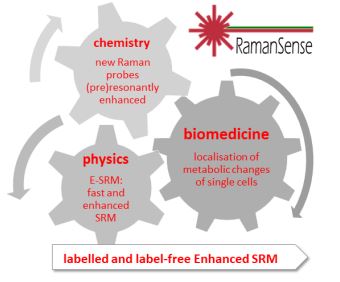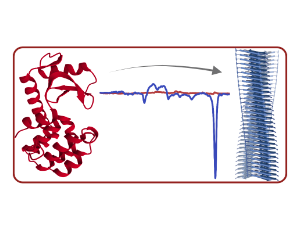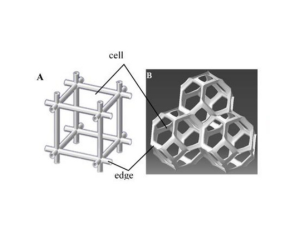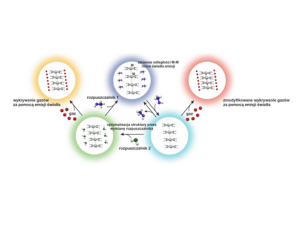
Pursuant to §7 (1) and (3) of Resolution No. 61/X/2022 of the Senate of the Jagiellonian University of 26 October 2022 on the terms and conditions for admission to the Doctoral School of Exact and Natural Sciences at the Jagiellonian University in the academic year 2023/2024, the Director of the Doctoral School of Exact and Natural Sciences announces
a competition for 1 doctoral student(s) with a stipend funded by a research project for the education programme Chemistry within the framework of the project Maestro 14 entitled: RamanSense: Metabolomics based on Enhanced Stimulated Raman Microscopy.. Grant manager Professor Małgorzata Barańska from Chemical Physics Department at the Faculty of Chemistry JU offers the opportunity to complete a PhD in the topic:
"RamanSense: Metabolomics based on Enhanced Stimulated Raman Microscopy"
Description of the research project:
RamanSense is a multidiciplinary project where a new spectroscopic technique is developed. It is a combination of newly developed Enhanced Stimulated Raman Microscopy (E-SRM) and newly designed Raman probes, targeting specific subcellular structures and their functions, to be applied to study the metabolic state of cells. New omic approaches, based on genomics, transcriptomics, proteomics and metabolomics, can help define the multiple cellular and humoral interactions that regulate normal and abnormal cell development and their response to stress or pathogens that are hallmarks of disease. the main goal of RamanSense is to overcome methodological and technical limits of optical imaging in detecting small organelles and specific molecules within cells by harnessing physics, chemistry, medicine, pharmacology, biology, engineering, and data analysis, to use these advanced technologies in life sciences. The novel Raman technique is not only better than the current state of art but will allow analysis of living cells to track processes and is essential to the better understanding of the respective diseases and improved treatment strategies.
Candidate profile:
- M.Sc. (or equivalent) in the field of chemistry, biology, physics or related sciences, and enabling application to the Doctoral School;
- appropriate experience for the laboratory work to handling biosamples;
- basic knowledge about molecular spectroscopy;
- fluent knowledge of English in speech and writing.
The competition will be conducted by the Admission Committee and the results will be the basis for the admission of the selected candidate(s).
Competition schedule:
-
Announcement of the competition on the Doctoral School website: 11.08.2023 r.
-
Opening of the competition (start accepting applications in the IRK): 1.09.2023 r.
-
Deadline for submitting applications (closing date for IRK applications): 8.09.2023 r.
-
Entrance examinations: 13-14.09.2023 r.
-
Announcement of results: 18.09.2023 r.
-
Enrollment: 19-22.09.2023 r.
-
Enrollment (reserve list): 25.09.2023 r.
-
Expected start date of education: 1.10.2023 r.
Admissions procedure
- Detailed terms and procedures of admission - tailored to the Chemistry study programme according to the current Recruitment rules for the 2023/2024 academic year can be downloaded HERE
- Application and entry documents for Chemistry study programme can be downloaded HERE
Please upload your application documents to the electronic IRK system (
irk.uj.edu.pl)
In the case of exposure to factors that are harmful, strenuous, or hazardous to health, the candidate is referred to a medical examination by an occupational physician at the time of enrolment. The candidate is required to provide a medical certificate stating that there are no contraindications to undertaking education within the deadline set by the education programme co-ordinator (applies to selected education programmes only).
Higher education certificates obtained abroad should:
- bear an Apostille when the country issuing the document is covered by the Convention Abolishing the Requirement of Legalisation for Foreign Public Documents, done at The Hague on 5 October 1961 (Journal of Laws of 2005, No. 112, item 938), or
- by subject to legalisation, in other cases.
In particularly justified cases, at the request of the Grant Manager, the Director of the NŚiP Doctoral School may waive the requirement to provide apostille or to submit diplomas of higher education or other documents for legalisation.
Any document issued in a language other than Polish or English must be accompanied by a certified translation into Polish or English.




